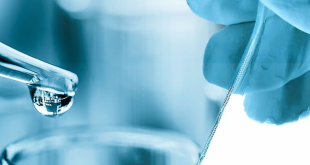Cansino coronavirus vaccine (Ad5-nCoV) is a viral vector vaccine that utilizes the Adenovirus. This Adenovirus is a Human adenovirus type-5 virus that is a common cold virus. The virus is genetically modified to make it non-virulent and replication-deficient. The Ad5-nCoV is developed by the Cansino Biologics incorporation which has collaborated with the Beijing Institute of Biotechnology. The name Ad5-nCoV is an acronym for the Adenovirus type-5 novel coronavirus vaccine. The Cansino used its Ad5 vector vaccine technology for the development of the Ad5-nCoV vaccine. This vaccine antigen delivery technology is highly developed and efficient. The Cansino has also used this technology for making the Ebola vaccine which has provided a direction to the company to work on the vaccine against SARS-CoV.
The Adenovirus Ebola vaccine (Ad5-EBOV) is under the Phase II clinical trials. Various Ad5 vaccine candidates exist in the WHO draft landscape of COVID-19 candidate vaccines against the SARS-CoV list like OraPro-COVID-19 by StabilitechBiopharma. According to some reports, the Cansino Coronavirus vaccine is the most advanced vaccine among all other vaccines undergoing clinical trials. The vaccine expert in Shanghai, Tao Lina, said that the Ad5nCoV acts better than the US and UK developed vaccine candidates since it produces a cell-mediated response which is difficult to produce. He also stated that both the cell-mediated and antibody-mediated can prolong the efficacy of the vaccine.

Cansino Coronavirus Vaccine(Ad5-nCoV) Phase Results
Pre-clinical
The Pre-clinical animal studies of the Cansino coronavirus vaccine (Ad5-nCoV) had shown promising results. The vaccine was able to provoke a strong immunological response in animals. The company has also highlighted that it had shown a good safety profile during its pre-clinical animal study. During pre-clinical studies, 21 days after the immunization when the ferrets were challenged with SARS-CoV, seven out of eight were well immunized and didn’t have any copies of the virus whereas one ferret from the control group had negative results. After the promising results of pre-clinical studies, the company moved to the clinical trial in humans.
Phase I trial
On 17th March 2020, the investigational vaccine of Cansino received approval for the Phase I trial. The Phase I trial was a non-randomized, open-label, and dose-escalation trial. The Phase I trial was single-center therefore it was conducted only in a rehabilitation center in the city of Wuhan, province of Hubei in China. Healthy volunteers between the age of 18-60 years with no prior or recent SARS-CoV infection formed the inclusion criteria for the Phase I. While the exclusion criteria included the history of convulsions, seizures or any other mental illness, allergy to the vaccine or its ingredients, fever on the day of enrollment, part of any previous or recent clinical trial or research for medicines or vaccines, received any blood or blood product in past 4-months and inability to follow the Phase I schedule. The volunteers were consecutively selected to receive an increasing dose of the vaccine intramuscularly. The low, middle, and high dose groups form the three dose-escalating groups for Phase I.
The low dose group received 5×1010 viral particles per 0.5 ml, the middle group received 1×1011 viral particles per 1 ml whereas the high dose group received 1.5×1011 viral particles per 1.5 ml. There were two safety points, primary which compromises of any adverse reaction within 7-days of post-vaccination while the other secondary which compromises of any safety issues 28-days post-vaccination. A total of 108 volunteers were enrolled. 36 volunteers for each dose group. The adverse reactions related to the injection site reported were pain, redness, itching, swelling, and muscle weakness. The systemic adverse reactions reported were fever, fatigue, headache, diarrhea, impaired appetite, vomiting muscle, and joint pain.
The majority of these adverse effects were mild to moderate in severity. No serious adverse reaction was reported within 28 days after vaccination. The vaccine was found to be well tolerated. Specific T-cell responses were at peak on the 14th day after vaccination whereas the neutralizing bodies were at peak on the 28th day after vaccination. Professor Wei Chen, from Beijing Institute of Biotechnology, has given the following statement about the Phase I results:
“These results represent an important milestone. The trial demonstrates that a single dose of the new adenovirus type 5 vectored COVID-19 (Ad5-nCoV) vaccine produces virus-specific antibodies and T cells in 14 days, making it a potential candidate for further investigation.”
But one of the unpromising factors found during the Phase I study was that immune response slows down if there is a pre-existing Ad5 immunity. Because it neutralizes the viral vector. For such a population that has pre-existing Ad5 immunity, a booster dose will be needed to provoke strong and long-lasting immunity. The older population over the age of 60-years was included in the Phase II trial since there is the possibility of the low immune response in them. They are the most essential targeted population for the vaccine against SARS-CoV.
Phase II trial
The Phase II trial involved 508 individuals above the age of 18-years. The trial was double-blinded, randomized, and placebo-controlled. Like Phase I, Phase II was also the single-centered and was performed in a center in the city of Wuhan, province of Hubei in China. There were two dose groups, one having 1×1011 viral particles whereas the other having 5×1010 viral particles. The seroconversion of the neutralizing antibodies was found to be in 59 percent and 47 percent volunteers whereas the seroconversion of binding antibodies was found to be in 96 percent and 97 percent of the volunteers consecutively. Both of these have produced an equivalent immunological response to the spike protein of the SARS-CoV.
According to the report published in Lancet, there was no significant difference found in the immune response of the two dose groups. It was found that on the 28th day after the immunization 95 percent of the volunteers in the 1×1011 dose group whereas 91 percent of volunteers in the 5×1010 dose group showed either cell-mediated or antibody-mediated immunological responses. In 90 percent and 88 percent of the volunteers elicited T-cell response was found consecutively. 355 out of 508 volunteers had reported adverse effects mostly fever and headache following immunization. None of the adverse effects was of serious concern. According to the vaccine expert in Shanghai, Tao Lina, the percentage of the adverse events is high but is within an acceptable range for COVID-19.
Phase III trial
According to the author of the report published in Lancet, they are planning the Phase III trial, the purpose of which is to evaluate the efficacy of the vaccine. The trial will be a multi-center, double-blinded, randomized, and controlled trial. According to the Tao, for Phase III around 5,000-10,000 individuals will be sufficient and the data can be collected in a month after the initiation of the trial. Phase III of the Ad5-nCoV has already started.
Cansino Coronavirus Vaccine(Ad5-nCoV) Mechanism
Cansino coronavirus vaccine (Ad5-nCoV) is a viral vector-based vaccine. These viral vectors help the target gene in entering the cell where they infect them. This mechanism is essential for candidate vaccines against SARS-CoV. This mechanism can also be seen as a hybrid of “live virus and recombinant protein” since it uses a real non-virulent virus to make protein antigens which then provokes the immune system to produce antibodies.
Various viral vectors have been used for the vaccines to this day like Adenovirus, rabies virus, and attenuated parainfluenza virus. Studies have indicated that when green African monkeys were immunized with attenuated parainfluenza virus expressing the SAR-CoV spike glycoproteins, it provoked an immune response which protected the animals from the SARS-CoV. Similarly, another report indicated that when rabies virus expressing the spike glycoproteins of SARS-CoV was used for immunization, it produced neutralizing antibodies against SARS-CoV.
According to the studies, the viral vectors that can express the SARS-CoV spike glycoprotein can provoke neutralizing antibodies against SARS-CoV provides an effective platform for the development of a vaccine against SARS-CoV. One problem that is encountered with the viral vector is that if the vaccine already has a high prevalence of neutralizing activity in humans then it will result in the eradication and neutralization of the viral vector even before it gives its foreload. Therefore the selection of the viral vector should be done carefully.
Cansino coronavirus vaccine uses Adenovirus as a viral vector. It is a recombinant adenovirus type-5 novel coronavirus vaccine against SARS-CoV. Adenovirus is a common cold virus. The non-virulent adenovirus type-5 virus vector is genetically modified so that it can express spike glycoproteins of SARS-CoV. When the intramuscular injection of Ad5-nCoV is given, it enters human cells where it produces the spike glycoproteins of the SARS-CoV. Then these spike glycoproteins travel to the lymph nodes. At the lymph nodes, the immune system recognizes the spike glycoprotein. The immune system starts making the antigen-specific antibodies and the T-cells to combat SARS-CoV. Later if the immunized person contracts the virus, the immune system will recognize it and attack it to fight off the SARS-CoV.
Cansino Coronavirus Vaccine(Ad5-nCoV) Availability
The Ad5-nCoV vaccine has entered in its Phase III clinical trials. If the clinical trials of the vaccine are successful, the vaccine might be available in the market for use by the end of 2020 or the start of 2021. Tao Lina, the vaccine expert in Shanghai, said that the other vaccine candidates being developed in the US and UK require two injections whereas the Cansino coronavirus vaccine provokes immune response with a single injection in low doses. He further added,
“That means our vaccine’s production capacity can be double of the other two, largely improving our viral prevention efficiency.”
He also said that the vaccine will not be approved until its safety and efficacy becomes greater than 90 percent.He further added,
“If everything moves along smoothly, a vaccine can be available in China in October, being approved on the market or in usage on some specific groups.”
Cansino Coronavirus Vaccine (Ad5-nCoV) Cost
Cansino has not released any report regarding the cost of the vaccine. The cost Ad5-nCoV will not be much different from the cost of Ad5-EBOV. It is too early to comment about the price of the vaccine but it is expected to be between 3$ to 10$.
 Health & Care Information
Health & Care Information 


